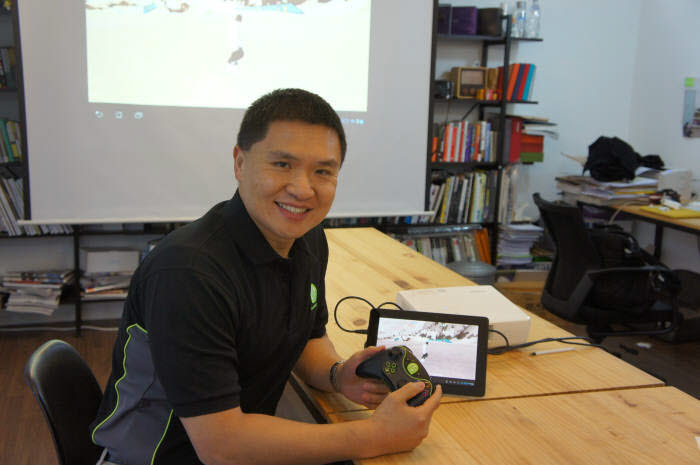Charles Huang, the co-creator of worldwide hit game Guitar Hero, recently joined SparkLabs and BeSuccess at Memebox Headquarters to talk to startups about the ways Korean companies can successfully export Korean products and services to overseas markets. The event offered the companies a chance to gain direct insight into the life of a successful Silicon Valley entrepreneur – the Guitar Hero series earning a total of $2 billion in retail sales.

After briefly telling the story of how he and his brother Kai Huang founded the company RedOctane and created Guitar Hero together, Huang used his experiences to introduce several lessons that can be learnt when trying to sell a cultural product to other markets and how Korean startups can use these methods to launch services in the US.
“South Korea is one of the few countries that can export these type of products. Korean culture has gotten to the point where the world sees them not just as a manufacturer of cars, but also as a creator of other cultural products like music, movies and games.”
While highlighting several popular Korean services with potential such as Kakao Talk, Huang says that alternative platforms are one way to penetrate markets which were previously seen as unreachable. Citing Psy and his success with his song ‘Gangnam style’, he emphasized that normally for a Korean song with Korean lyrics to be so successful would be unthinkable through traditional distribution channels — but utilizing YouTube made it possible.
According to Huang, the same strategy can be used by other media such as games to crossover into foreign markets and talked about the success of US games in the Chinese market by partnering up with companies like Tencent. Cross promotion has also played a major factor in bringing together foreign markets, with game companies more frequently using it to expand their target audience. Huang explained that these opportunities exist for Korean companies too.
“For every Psy, there’s an MC hammer wanting to break into each other’s market.”
He recommended that Korean startups look out for potential partners abroad that they can create synergy with, saying that there is always someone overseas at a similar stage that also wants to break into your market. While cross promotion may involve using a partner’s brand name, Huang believes that international startups don’t necessarily need to label themselves with competitor’s names.
“In Silicon Valley nobody says things like ‘We are the Facebook of Korea’, people just say ‘We are Facebook.’ You want to be everywhere, and when we started we wanted to be everywhere.”







